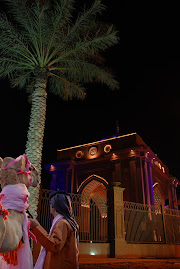By Tala Al Ramahi
After years of finding and losing love (or not finding time to look for it any more) career-driven and emancipated women in the West are turning to matchmaking websites, such as eHarmony.com, to find a serious partner. Their modern Arab counterparts, while also independent and educated, are turning to a more traditional marriage broker: their parents.
As more and more Arab women are gaining university degrees, and entering the workforce, they have been faced with the same dilemma confronting their emancipated sisters elsewhere: how to focus on a serious career while simultaneously being on the lookout for a serious partner. Female liberation, they have found out, comes with its drawbacks.
The continuing economic boom in Dubai (and now Abu Dhabi) has attracted bachelors by the tens of thousands; career-driven and eligible men from all over the Arab world (and beyond) are employed by local companies as consultants, bankers and engineers to help to shape and catapult growth.
So, in theory, there should be many opportunities for Arab women to meet “eligible” bachelors. The reality is a little different. Most of these “eligible” men have a lot in common: they are young, career-focused and transitional – waiting for the next grand opportunity to come along. They are more likely to country-hop until they have found their final destination, and are subsequently in no hurry to be shackled by the responsibilities of a family.
This leaves “modern” Arab women – who would once have shunned the idea of an arranged marriage for the hope of a love courtship that would eventually lead them down the aisle – with few options; their parents being the most dependable. It is an option that also allows career-driven women, who are unable to invest the effort and time necessary to find spouses on their own, to fall back on a selfless matchmaker.
The modern-day version of the arranged marriage, though, is a little different from the traditional one; most notably, the woman is not being forced into matrimony. Instead, the Arab woman is using the people who know her best and have her interests at heart to take part in the matchmaking process and recommend a prospective groom.
The woman still has the right to veto the recommendation, and is usually allowed to meet the possible suitor alone to see if there is any “chemistry” between them. It also helps the Arab woman to filter out the “eligible” bachelors who are not seeking a serious courtship. This not only saves the woman time, but also helps to avoid potential heartbreak by committing time (and emotion) to a man who was not really interested in a matrimonial commitment in the first place.
This new-old method of including parents in the marriage equation is not, in fact, so different from signing up for an account with a matchmaking website. For a start, people who sign up for such websites are usually looking for serious suitors. And while eHarmony will require its applicants to answer more than 250 questions about personality traits and values, the Arab woman’s parents already know them, along with all the idiosyncrasies that cannot possibly be incorporated into a website.
Eharmony then uses a complex algorithm to match its users who have “common interests” because, according to Neil Clark Warren, the website’s founder, “it is so much better to love someone who is a lot like you”. Whether or not it is “better”, it is undoubtedly easier, especially when children come into the picture. And parents, from their years of experience in the matter, already know that. Which is why, while traditional arranged marriages matched men and women whose parents had a mutual interest in, say, property or land, modern arranged marriages focus on more pragmatic considerations: socioeconomic status, education, religion – even political beliefs.
Savvy Arab women who have lost hope in love need not resort to Carrie Bradshaw for advice when a less fashionable but probably wiser alternative is at their disposal.
Divorce rates in the United States – a country where most marriages are love matches – are depressingly high: above 50 per cent, in fact. And with romantic novels and Hollywood movies ingraining the “happily ever after” notion in the minds of many a woman, it is no surprise that large numbers of couples assume that love will conquer all.


1 comment:
You make a good point, although I think some of it is to do with tradition and values. The divorce rate in the west didn't used to be so high. Bit depressig though.
Post a Comment